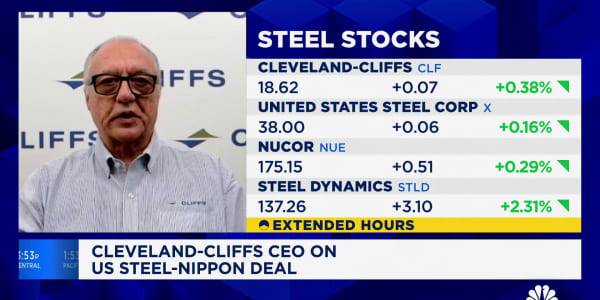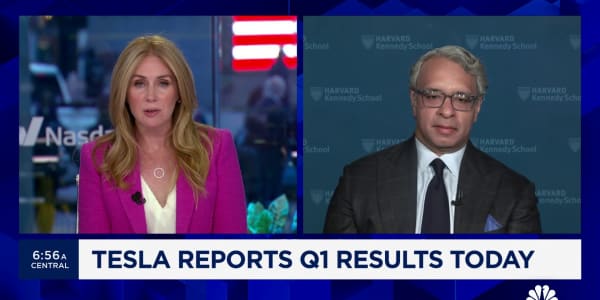
Wall Street banks may appear to be offering higher salaries to junior employees, but the increase may not be as generous as it looks.
Goldman Sachs, JPMorgan Chase and Bank of America are expected to increase pay by at least 20 percent, according to reports from Reuters and the New York Post.
However, banking analyst Dick Bove said there actually may be less than meets the eye to the news, at least in terms of how much big Wall Street financial institutions actually will be spending on employee compensation.
"What they may actually be doing is shifting long-term compensation awards to salaries. Immediate payments may be rising while bonuses and deferred stock awards go down," Bove, the vice president of equity research at Rafferty Capital Markets, said in a note to clients. "Thus, overall compensation may not be changing at all."
He advised investors to watch company balance sheets at the end of the year to see just how much total compensation paid changes—or not—in light of the news about higher pay levels.
Read More
What Bove said addresses how the new pay structure would affect bank balance sheets in the aggregate.
For those affected individually, though, the impacts should be substantial.
First-year analysts at Goldman Sachs, for instance, are expected to see their salaries jump from $70,000 to $85,000 a year, a source familiar with the matter told CNBC.com. Second- and third-year employees at the firm likely will be getting raises, but most probably will be less than 20 percent, the source said.
Read MoreWall Street banks plan for UK exit from EU
In the case of JPMorgan, the salary increases are likely to be in the 20 percent to 25 percent range, though a source at the bank familiar with the situation told CNBC.com the exact numbers haven't been worked out yet. However, this source said it's probably correct to assume that the increases are likely focused on salary and are unlikely to have much impact on total compensation—meaning that the bonus pool could get reduced at the expense of base salary increases.
"I don't expect many of these firms' (pay changes) to have a big effect on total compensation," the source said. "It's not necessarily that overall compensation is going higher, just that salary is going higher."
A source at Bank of America said the company is "considering" raises but no decisions have been made. This source said that amid a strong year for mergers and acquisitions and underwriting, raises of 20 percent or better wouldn't be out of the question.
Industry insiders attribute the move to two factors: the desire to compete for talent in an environment where entry-level bankers have an increasing number of options, including not only directly in the finance field but also at tech firms, and a general desire to provide a better working environment for employees who, at least for their first several years, are subject to a grueling, often times seven-day work routine.
BofA garnered some bad headlines, for instance, when one of its London interns died a year ago in an apparent suicide after reportedly working three days straight.
Read MoreBofA intern dies after reportedly working 3 straight days
Bove enters a third point into the equation, namely the re-emergence of the so-called shadow banks—that $3.2 trillion non-bank lending system that has returned to prominence after being demonized during the financial crisis for its risky lending practices.
"Numbers of black market firms have risen in recent years to take share from the regulated banking industry," he said. "The success of these efforts has allowed these companies to offer more attractive pay packages and anonymity. Workers in these companies are not being attacked constantly by the government and the press. They do not run the risk of being sued and vilified (publicly). They can do their jobs and get paid what they earned."
Spokesmen for Goldman Sachs, JPMogan and BofA declined to discuss the issue.
—By CNBC's Jeff Cox






